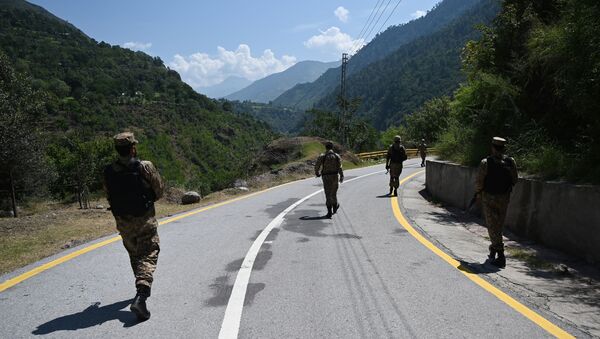Imran Khan was invited by the Washington-based Council for Foreign Relations, a think tank, on Monday to speak on a wide range of issues, including the current state of US-Pakistan relations, Pakistan’s role in the ongoing crisis in Afghanistan, Islamabad’s record on countering terrorism on its northern and eastern borders, and its disputes with New Delhi over Kashmir and the narrative on the Balakot air strike, among other issues.
Nitin Gokhale, a journalist, author and security analyst, says that Imran Khan’s comments on many issues during his interaction with Richard Haass, President of the Washington-based Council on Foreign Relations on Monday, were designed to win sympathy and acceptance for Pakistani policies in the US.
Responding to Imran’s claim that Pakistan cannot alone be held responsible for the radicalisation of certain sections of its society, Gokhale said: “Imran Khan is trying to be politically correct. Since he is on a visit to the US, he needs to sound reasonable and project a view that is left-liberal in context and tenor.”
Former US Defense Secretary James Mattis’ description of Pakistan as “most dangerous because of the radicalisation of its society and availability of nuclear weapons,” is a fair assessment, per Gokhale.
According to Gokhale, the international community is "fully aware of Islamabad’s failed track record in tackling terrorism emanating from its soil".
The analyst also weighed in on Prime Minister Imran Khan’s claim that there is no border between Pakistan and Afghanistan and that the so-called Durand Line is an imaginary and historical creation of the British that has allowed Afghan insurgents to enter Pakistan to spread mayhem.
“This shows Pakistan and Imran Khan’s double standards. If Pakistan doesn’t acknowledge the Durand Line’s existence, Afghanistan also doesn’t. We also can’t ignore the huge Pashtun resistance building up against Islamabad on the Pakistan side of the border that separates it from Afghanistan and the attempts being made to neutralise them.”
Gokhale claims that Imran's statements that he did not think Pakistan was responsible for the US not succeeding in Afghanistan or for the Taliban’s terror chaos in the country, clearly exposed Islamabad’s duplicity.
“The world community knows of Pakistan’s duplicity. Afghanistan’s destiny would have been different had there been no interference in its internal affairs by Pakistan. Pakistan has always aimed to have control of Afghanistan and much of the instability that exists in Kabul today, the blame has to be placed at Islamabad’s doorstep,” said the analyst.
Commenting on Pakistan brushing aside Indian Army Chief General Bipin Rawat’s claim on 23 September that terror training camps have been reactivated in that country’s Balakot region seven months after an Indian Air Force bombing of one such facility in the same area, Gokhale said: “It’s natural and predictable for Pakistan to do so, not at all surprising.”
This visit to the United States is also important in terms of the need for the Pakistani leadership to convince the American public of its sincerity in cracking down on terror elements supposedly operating from its soil so that it could avoid being permanently put on black and grey list of the Paris-based Financial Action Task Force, the intergovernmental organisation created to form policies to combat money laundering and terror financing, Gokhale says.
As to whether Imran Khan has compromised his position as Prime Minister by his candid remarks that would seem a contradiction of Pakistan’s known agenda, Gokhale said: “There is a good understanding between Imran Khan and the Pakistan Army. Whatever he said in Washington on Monday would have been done in consultation with the army top brass, par for the course.”
The views and opinions expressed in the article are solely those of the speaker and do not necessarily reflect the official position of Sputnik.

